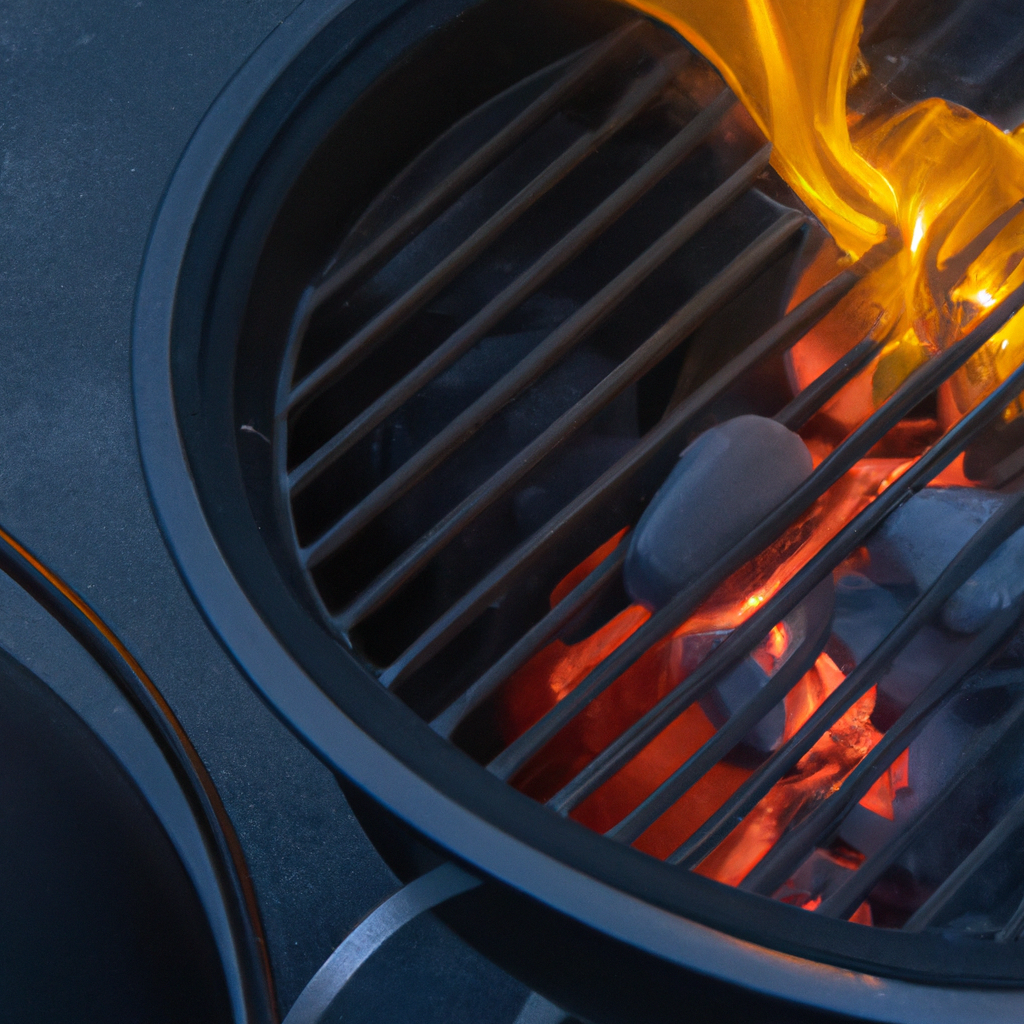
When it comes to cooking outdoors, BBQ and grilling are two popular methods that many people enjoy. Both techniques offer a unique and delicious way to prepare food, but have you ever wondered which one is better for your health? In this article, we will explore the differences between BBQ and grilling, and provide insights into their impact on your overall well-being.
The Basics of BBQ and Grilling
Before we dive into the health aspects, let’s first clarify the distinction between BBQ and grilling. BBQ, short for barbecue, involves slow-cooking food at low temperatures over an extended period. This method often utilizes indirect heat and smoke from wood chips or charcoal to infuse flavors into the food.
On the other hand, grilling refers to cooking food quickly at high temperatures directly over a heat source, such as a gas or charcoal grill. This method is known for its ability to create a nice sear and char on the exterior of the food, while maintaining its juiciness.
Nutritional Differences
When it comes to nutrition, the cooking method can have a significant impact on the overall healthiness of your meal. Let’s take a closer look at the nutritional differences between BBQ and grilling.
BBQ: Slow and Flavorful
One of the primary benefits of BBQ is the slow-cooking process, which allows the flavors to develop and intensify over time. This method is often associated with marinating the meat for hours, resulting in tender and succulent dishes.
BBQ cooking tends to retain more moisture and fat, which can contribute to a juicier end product. However, this also means that BBQ dishes may be higher in calories and fat content compared to grilled options.
Grilling: Quick and Lean
Grilling, on the other hand, is a faster cooking method that requires less time and preparation. It is often preferred for its ability to cook leaner cuts of meat, such as chicken breasts or fish fillets. Grilled foods generally have a lower fat content, making them a healthier choice for those watching their calorie intake.
Moreover, grilling promotes the retention of vitamins and minerals in the food, as the cooking time is shorter compared to BBQ. This means that grilled vegetables, for example, can retain more of their nutrients compared to their BBQ counterparts.
Potential Health Risks
While both BBQ and grilling offer delicious options for outdoor cooking, it is essential to be aware of potential health risks associated with each method.
BBQ: Smoke and Carcinogens
One of the concerns with BBQ is the production of smoke, which can contain harmful substances known as polycyclic aromatic hydrocarbons (PAHs) and heterocyclic amines (HCAs). These compounds are formed when fat drips onto hot coals or grates, creating smoke that can be absorbed by the food.
Exposure to PAHs and HCAs has been linked to an increased risk of certain cancers, including colorectal, pancreatic, and breast cancer. To minimize the formation of these compounds, it is recommended to trim excess fat from the meat and avoid charring or burning the food.
Grilling: Potential Formation of Heterocyclic Amines
While grilling is generally considered a healthier cooking method, it is not without its risks. High-temperature grilling can lead to the formation of heterocyclic amines (HCAs) in meat, poultry, and fish. These compounds have also been associated with an increased risk of cancer, particularly colorectal and stomach cancer.
To reduce the formation of HCAs, it is advisable to pre-cook the meat slightly before grilling, use lean cuts of meat, and marinate the food. Marinating has been shown to help create a protective barrier on the surface of the meat, reducing the formation of HCAs.
Tips for Healthy Outdoor Cooking
Now that we have explored the differences between BBQ and grilling, here are some tips to help you enjoy healthier outdoor cooking:
- Choose lean cuts of meat: Opt for lean meats, poultry, or fish to reduce the fat content in your meals.
- Marinate your food: Marinating can add flavor and help reduce the formation of harmful compounds during cooking.
- Precook the meat: Partially cooking the meat before grilling can help reduce the formation of carcinogens.
- Avoid charring or burning: Charring or burning meat can lead to the formation of potentially harmful compounds, so aim for a moderate level of browning.
- Use indirect grilling: If you prefer grilling, consider using the indirect grilling method, which involves cooking the food away from direct heat to minimize charring.
- Incorporate vegetables and fruits: Include a variety of vegetables and fruits in your outdoor cooking to add nutritional value and balance to your meals.
- Practice proper food handling: Ensure that you follow safe food handling practices to prevent foodborne illnesses.
Conclusion
In the battle between BBQ and grilling, both methods have their merits and drawbacks when it comes to health. BBQ offers slow-cooked, flavorful dishes but may be higher in calories and fat. Grilling, on the other hand, provides a quick and lean cooking option but requires caution to minimize the formation of harmful compounds.
Ultimately, the key to healthy outdoor cooking lies in moderation, proper food preparation, and mindful choices. By following the tips provided and being aware of the potential risks associated with each method, you can enjoy delicious outdoor meals while prioritizing your health and well-being.
Remember, whether you prefer BBQ or grilling, the most important thing is to gather with loved ones, savor the flavors, and create lasting memories around the grill. Happy cooking!

